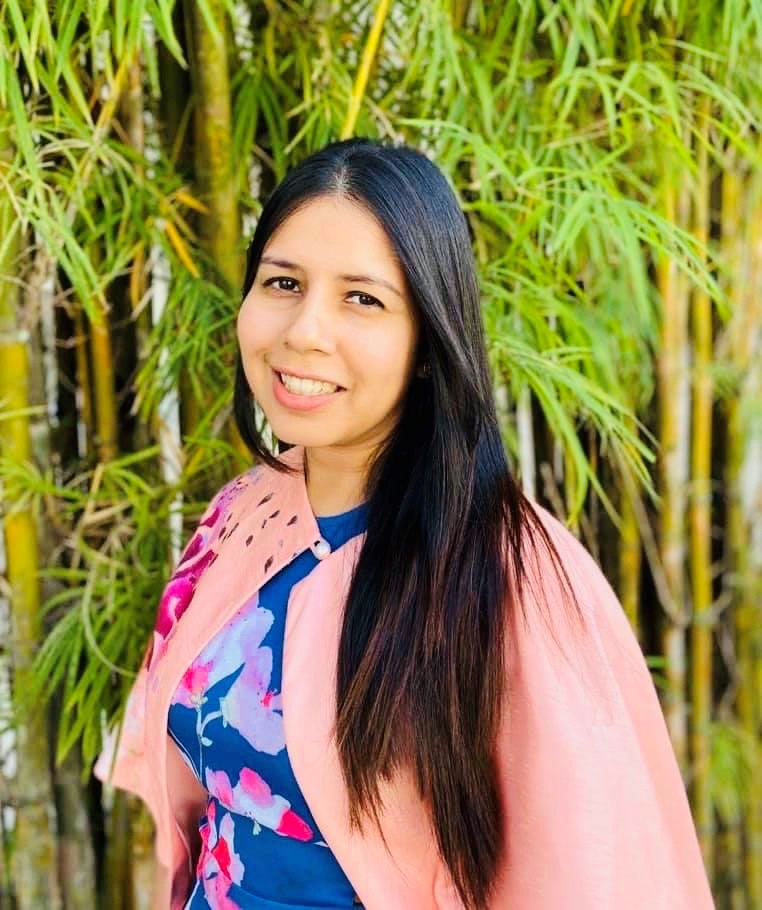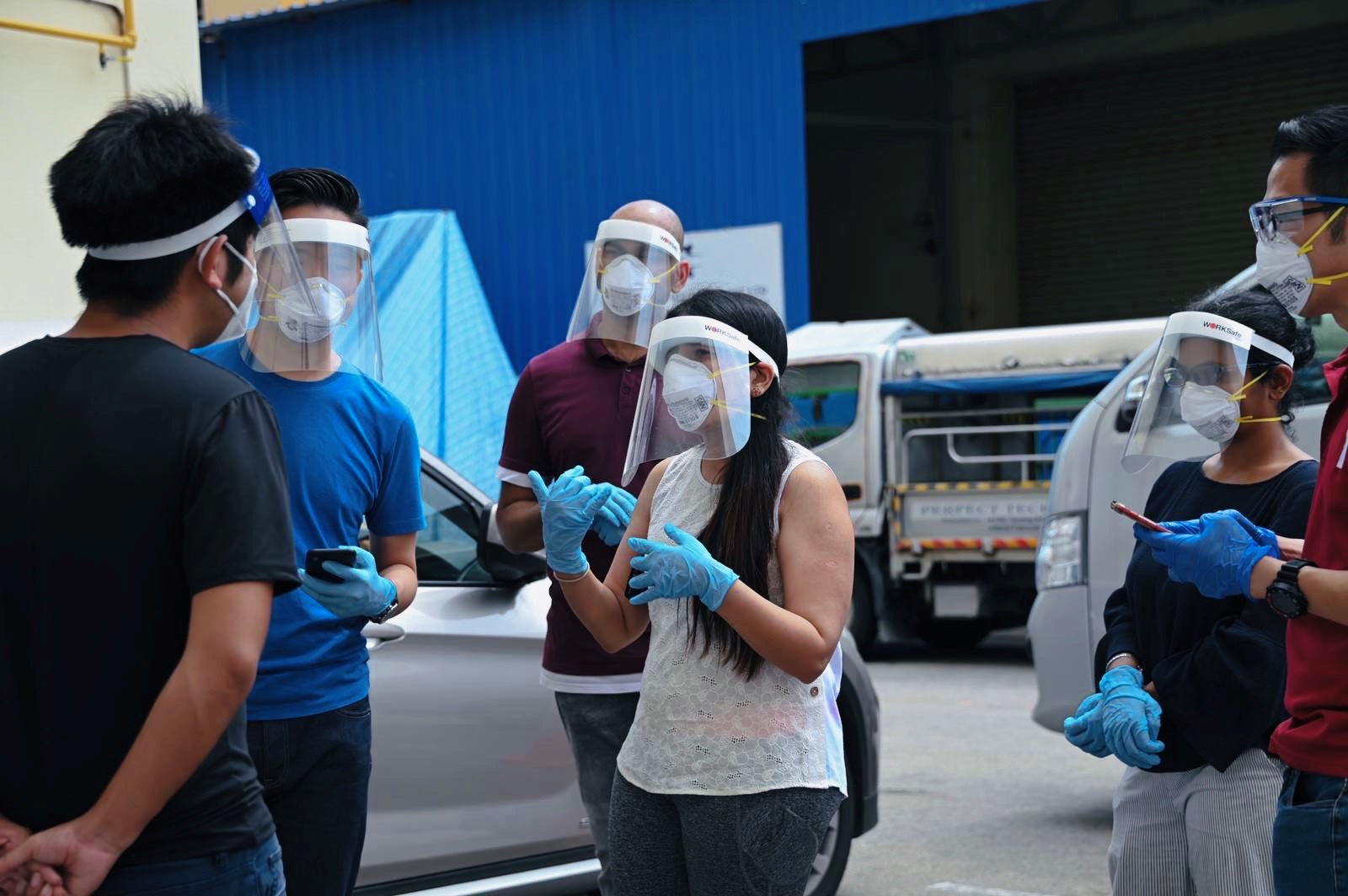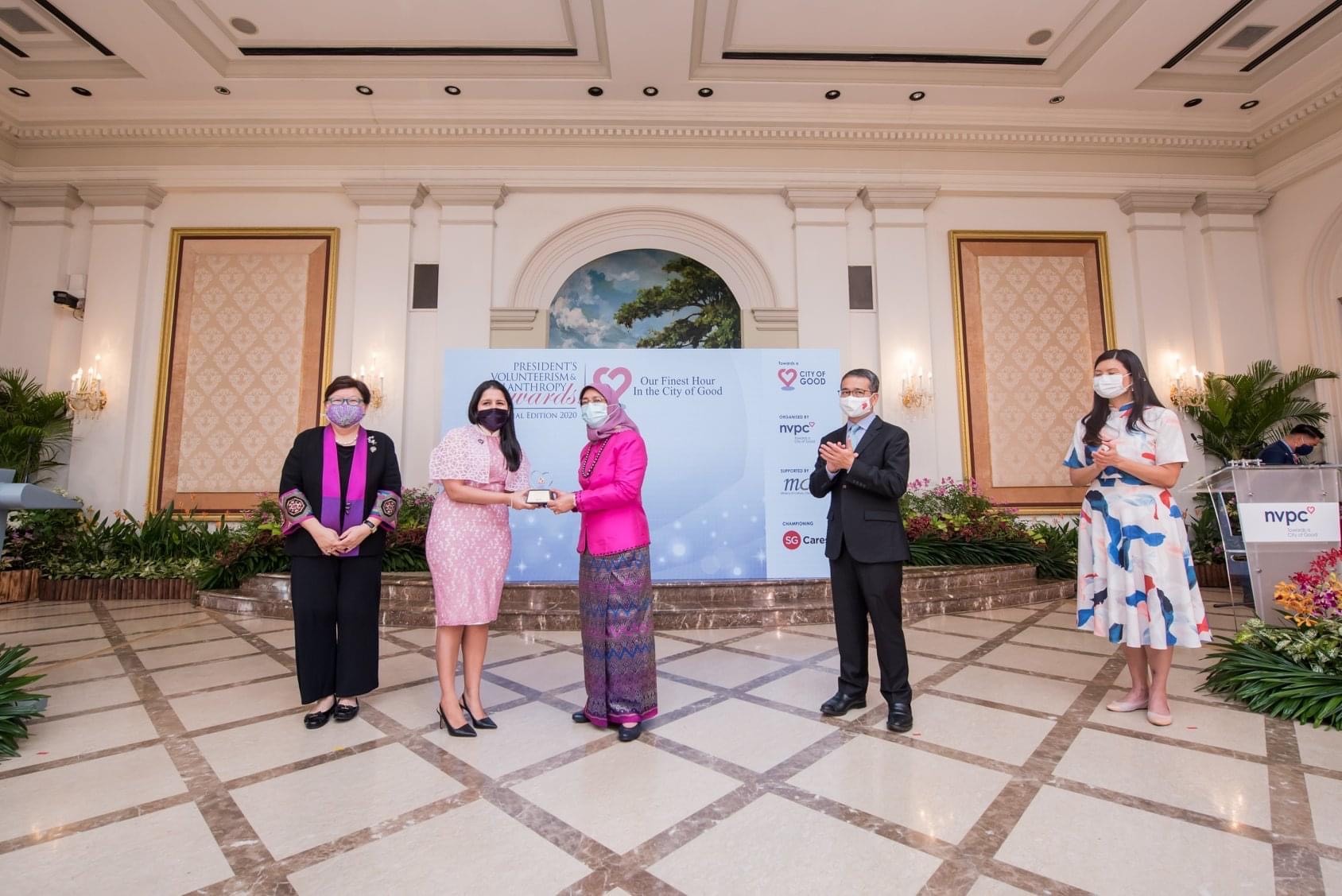[ALUMNI-INFO TEXT="Kindness and empathy are some of the essential traits that true leaders should have, says lawyer Renita Sophia Crasta (MPA 2020), our Singaporean alumna whose interest in the legal profession originated from a desire to serve the community. In Renita’s estimation, her job as Group Legal Counsel at CapitaLand in Singapore is personally gratifying, but so are her numerous efforts—outside of work—to effect change for those who’ve fallen through the cracks, especially during Covid-19."][/ALUMNI-INFO]
It may not be immediately clear how an MPA can benefit a lawyer, but Renita says she would definitely encourage lawyers, especially those involved in strategy and community matters, to pursue this course. Read on for her insights.

Renita is the Group Legal Counsel at CapitaLand.
You’re a Group Legal Counsel at CapitaLand, and recently won the Asian Legal Business (South-East Asia) Award for “Young In-House Legal Counsel of the Year.” Tell us about what you do, and what being a legal counsel means to you.
You could think of a Group Legal Counsel as being an “in-house legal doctor”—we’re on hand to help our colleagues quickly in their time of need, and also when they require reassurance. In-house legals assist in various matters, from transactional to operational. More than that, we are often placed in a unique position where we are critically involved in key decisions from the top to the bottom of the company. With a holistic view, we are able to communicate without being bound by much hierarchy, especially if we need to highlight issues of importance.
My job has given me the opportunity to make a difference, sometimes even beyond my legal expertise. At the end of the day, the satisfaction of helping my colleagues to achieve their goals, or steering our organisation in the right direction, remains extremely meaningful. I am proud to not just help my company but also my wider legal fraternity to share our expertise with others.
At work, what were some triumphs—and lessons—in this year of Covid-19?
In this Covid year, we’ve seen policymakers around the world having to make decisions quickly and competently across varying considerations, stakeholders, and uncertainties. This applies to businesses as well, as they are also pivoting and trying to make the right decisions in these uncertain times.
For example, my company grappled with issues—not just in Singapore but worldwide—including that all its asset classes across sectors were being disrupted. We had to deal with many government positions as well as customer considerations, while facing losses. At the same time, many of our colleagues had to continue to be on the frontlines around the world, with some eventually succumbing to the disease. Still other colleagues had to continue to be service-oriented and also assist our organisation to pivot and transform.
To this end, I’m glad I was able to contribute to my company by exploring solutions that will hopefully be a win-win for both our customers and ourselves, while meeting real needs and being in line with global trends. My company’s community initiatives—such as distributing food boxes purchased from our tenants to those in need, providing hotel space to migrant workers and taking care of them, and assisting in the distribution of hand sanitisers and other items to the public—also demonstrated to me the potential and ability of the private sector to step up for the collective good.
How did you get started in law?
I often say that most people can find a space for themselves in the law practice, regardless of a Science or Arts background, as Law is so diverse and covers all types of issues. It was probably my own avid interest in current affairs, as well as in contributing to society, that led me towards the law discipline.
My undergraduate degree is from NUS Law School, and it was a most rewarding and interesting first degree. Law trains one to think logically and critically, while evaluating situations from different perspectives. It gave me a good grounding for work, especially within my current company where we deal with many real-time “live” matters. It’s also been useful outside of work, particularly for community involvement.
[ALUMNI-QUOTES TEXT="What drew you to the MPA programme? [Note: Renita took a Master in Public Administration at NUS, and is currently completing her Master of Law as well.]
Having practised law for some years, I felt it was timely to further my legal knowledge, and I was interested in international and regional law modules that would complement my work. At the same time, I noted that NUS was offering a Double Masters in Law and Public Administration, and I started to look closely at the modules in the LKY School as well. As law and policy influence each other, I thought the MPA would give me insights to better explain certain positions to others, taking into account the policy considerations behind our laws and measures. I also felt that such learnings could be relevant for some of my community work."][/ALUMNI-QUOTES]
What’s your biggest takeaway from the MPA?
The MPA enhanced my understanding of how policies are made, and what drives policy decisions. Professionally, this enables me to give better feedback and assistance on the policies that we are consulted on, as well as work more effectively with those setting such policies.
Which classes did you like best?
I truly enjoyed the “Gender and Population” modules by Prof Erin Kim, the leadership lessons by Prof Lim Siong Guan and Prof Tan Yong Soon, and the “Public Management” modules by Prof Lee You-Na. These classes helped me significantly during this pandemic year, where I had to lead amidst much uncertainty both at work and in the arena of community involvement. For instance, I drew upon the systems thinking that we had just learnt.
Unfortunately, I didn’t get the opportunity to take other much-lauded modules—such as Prof Kenneth Paul Tan’s “Pragmatism in Singapore,” Prof James Crabtree's “Public Communications” class, and Prof Leong Ching's “Water Policy” course—but am sure that it would benefit interested students to do so.
To what extent is an MPA is useful for lawyers?
I would certainly encourage lawyers, especially those involved in community or strategy matters, to take on an MPA. It helps one's overall understanding of various issues taking place in society, how decisions are determined from a national perspective, and how law is just one of the tools that could be used to achieve policy goals. Especially for in-house lawyers, as our organisations transit in these changing times, it is important to understand the global forces as well as changing trends, as we determine the directions for our businesses.
The networks gain from getting to know other classmates, and receiving their support and encouragement, have also proven to be one of the greatest benefits from the MPA.
You’ve mentioned a passion for community work and making a difference. Tell us more.
I’ve always been involved in community work, from helping the elderly to supporting our women's groups and less well-off communities. As a lawyer, I’ve also done some of this through our in-house legal association (the Singapore Corporate Counsel Association), as well as by assisting in the background at Meet-the-People sessions.
With such practical understanding on the ground, coupled with the knowledge that we gained in class on the policies that impact these communities, I now have a deeper understanding of the gaps in society, as well as the potential solutions.
During the pandemic, one of my first initiatives was to set up a phone befriending matching service for the isolated elderly. At the time, I was assisting some charities to make sense of the safe distancing measures that were being put in place, such as what activities could or could not be carried out. To help these charities ease the load, I also set up digital systems that would allow befrienders to keep the elderly company, update them about ongoing developments, and provide help where needed, such as teaching the elderly how to install and use mobile apps. We were able to help over 100 elderly folks, at a time when many other organisations were still getting their processes in place.
This year, you (along with your co-leads) also won the President's Volunteerism & Philanthropy Award for being part of the Covid-19 Migrant Support Coalition (CMSC). How did you get involved in this?
Upon the onset of the crisis, it soon became apparent that the needs of migrant workers would be tremendous, especially as they do not have the amenities that many of us do. Hence, a group of friends and myself, together with many other amazing volunteers, set about to meet their needs—from the provision of essential food supplies to mental health and engagement activities, as well as legal and casework matters. We thereafter became involved in a taskforce where we gave critical ground and policy feedback, as well as assisted the government to roll out measures and communicate them to the relevant parties, including the workers.

CMSC efforts on the ground - discussing on medical and casework issues with dorm operators outside the dormitories
With CMSC, what was the biggest challenge that you faced?
One of our biggest challenges was in trying to gain understanding of the different stakeholders, including the public. We saw firsthand that there were many competing interests that had to be balanced when dealing with issues on the ground. It was being privy to these issues that made it possible for us to empathise with the different parties, including the government, and to better assist with the joint efforts.
What about the successes of the project?
CMSC showed that it is truly possible for the public, private and civil sectors to work collaboratively to solve community issues on the ground, even during a pandemic. We looked out for the needs of not just the migrant workers, but also their employers and the dorm operators, while also working hand-in-hand with the government to coordinate these efforts. In this time, traditional boundaries were eased in favour of achieving the necessary outcomes, and new ideas were able to emerge.
I’m also proud of what was achieved. We were one of three awardees of the President's Volunteer and Philanthropy Award for being a "Leader of Good" during the Covid-19 crisis. We mobilised over 700 volunteers and 200 befrienders to deliver over 1.9 million essential supply items, more than 80,000 hot meals, and almost 35,000 matched donation items. At the same time, we carried out mental health and engagement activities, dealt with over 3,000 casework cases, as well as worked in the background to give real-time feedback to the relevant authorities, along with providing other mental health support and engagement initiatives.

Renita receiving the President's Volunteer and Philanthropy Award
Elsewhere, you've talked about kindness representing the essence and success of a true leader in today’s world. Do you still feel this way?
Kindness is indeed one of my personal values, and while I do believe very much in fairness and social justice, I am very keen that we should also balance this with kindness and empathy.
I’m inspired by my parents, as they have always exemplified the same, more through their actions and deeds than by any words. I believe it is this value of kindness, as well as the power of empathy, that can truly help each of us to create more space for each other, and move towards better outcomes.